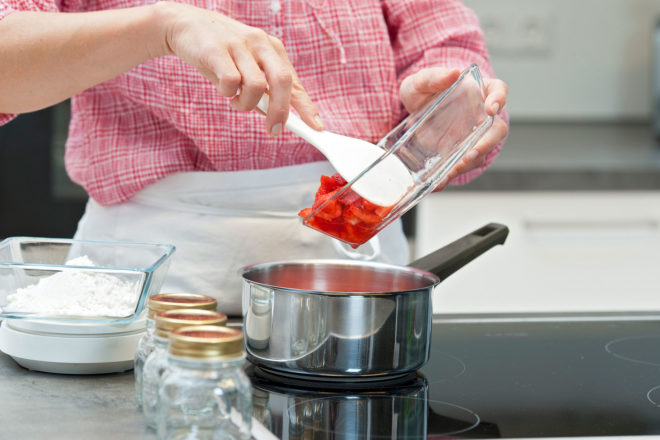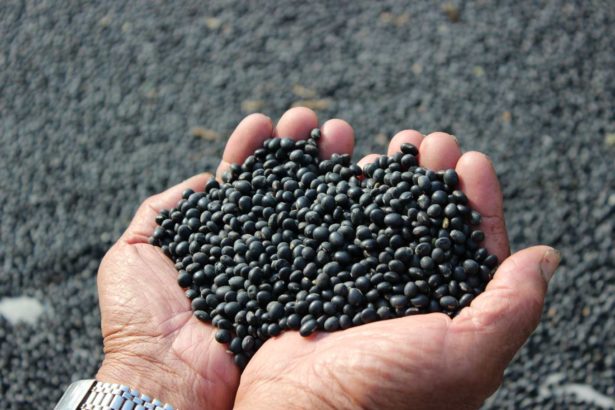[Agricultural Food Cooperation, Complete Analysis II] Is it legal for farmers to produce processed products? How?
Share + 1 Tweet Email
Small farmers do not follow the trend of Wenqing or tell about the nostalgia of grandma's era, but they are flexible in the face of overproduction and consumption outside the specifications, because they are small, so they are highly flexible. there is market competitiveness in flavor and innovation, which is difficult to match with the fixed mode of quantitative production by large factories.
Engaging in food manufacturing without factory registration is often referred to by the media as an "underground factory." however, according to the relevant regulations of the Ministry of Economic Affairs, a factory needs to be set up with an area of 50 square meters and electricity consumption of more than 75 kilowatts before it needs to be registered; therefore, if you are a farmer and want to produce your own agricultural products, do you want to set up a food factory? Or build a processing room? And how to follow it in taxation? The following is about the production location, production behavior, tax … And so on, explain the common doubts of farmers one by one.
Relevant laws and regulations on farmers' own production and processing
✓ production location
Farmers can build their own agricultural processing rooms or apply to organic verification units for organic processing rooms in accordance with the measures for the examination of the use of agricultural facilities for agricultural land. If the environment is safe and hygienic, small-scale production, in their own kitchen, independent space, of course.
✓ production behavior
As long as it is food manufacturing and processing, regardless of identity, it is necessary to follow the "GHP guidelines for good Food Hygiene". (the classification of Taiwan's current laws and regulations is toward upward standardization, and it is becoming more and more stringent for companies with specific items and higher capitals. in the face of smaller producers, they do not clearly define the category of small producers (items, scale, and sales scope) as defined by Cottage Food Laws in the United States, and adopt looser standards. )
✓ tax, voucher
Farmers who produce and sell their own agricultural products to produce processed products do not need to issue invoices and are exempted from business tax, but they must issue farmers' receipts (vouchers). In accordance with the latter paragraph of Article 8, paragraph 1, paragraph 19, Article 29 of the Business tax Law and the Ministry of Finance's letter No. 10000366900 on October 3, 100, farmers selling agricultural, forestry, fishing, animal husbandry products, by-products and agricultural products produced by farmers themselves (including self-produced agricultural products) shall be exempted from business registration and business tax.
✓ Food Industry Login
It is recommended to log in to the food industry of the Ministry of Health and Welfare to log in to the platform (must be logged in), and the login number should be marked on the outer packaging of the food.
Packaging marking of ✓ products
The outer packaging of food must have a complete and correct food label (see Article 22 of the Food Safety Law for details)
Verification of non-organic processing process, no organic words shall be marked in the text
The text shall not declare any curative effect or advertise it as infant food.


★ uses clean utensils and rags
Small producers usually use utensils shared with families, be sure to clean before and after each use (preferably a separate set, to avoid doubts about cross-contamination, raw and cooked food, meat or allergens), especially the use of rags for a year or half without disinfection and sterilization, become a hotbed of bacteria and unconsciously, it is recommended to use paper rags (can not wash off cotton shavings with repeatable water), and use new ones each time to reduce the risk of pollution.
★ purchase documents invoice photo and retention
Although the raw materials used in the processed products produced by farmers are simple (such as salt, sugar, oil), in order to have traceable source proof, be sure to ask for invoices, shipping orders and receipts. Wait, just simply buy a loose-leaf folder, put it in chronological order and keep it, and remember to take pictures as a backup.
★ production record sheet and shipping documents
Record the amount of raw materials, finished products and losses used in each production, and can simply use the production date as the batch number Shipping documents can be purchased stationery line common duplicable shipping orders or farmers' receipts, fill in the correct shipping quantity, price and production date (corresponding batch number), production records can be used as a traceability basis, when the product deterioration can be reviewed back, can also be detailed calculation of product cost changes, to find the most suitable batch production quantity.
★ finished product retention
At least 2-3 finished products are retained after each production (note that the retained finished products need to be packed in the same way as the sold finished products, not in bulk), which can be used as an assessment of product variation, such as abnormal changes (spoilage or changes in color, taste and taste) before the expiration date of the product, indicating that there are problems in the production process, or that the expiration date should be further shortened. In addition, when a customer complaint occurs, the same batch of products can be compared to determine whether it is a problem at the production end or a failure to preserve it properly at the consumer end.
Finally, aiming at environmental hygiene, personnel and appliances, we can look for the "self-management checklist" of the health bureaus of counties and municipal governments. For example, electric fans should be clean and equipped with net covers, garbage cans should be covered, toilets should be equipped with door curtains, raw materials should be placed off the ground and away from the wall, and wear correct clothing. As for the basic requirements, the inspection must be gradually improved one by one, so that farmers' self-produced processing can be supported and affirmed in terms of legality and products.
Share + 1 Tweet Email
- Prev

Crisis is a turning point! Domestic soybeans form an alliance to collect gas and sell together to enhance their competitiveness.
Crisis is a turning point! Domestic soybeans form an alliance to collect gas and sell together to enhance their competitiveness.
- Next

Own a piece of terrace that belongs to you! Japan's "owner system" promotes the Revival of Water terrace Culture
Own a piece of terrace that belongs to you! Japan's "owner system" promotes the Revival of Water terrace Culture
Related
- A course of planting techniques and methods on how to grow carrots
- How to plant the latest tulips?
- Is it better to pick tea in the morning or in the afternoon? When is the best time for tea to be picked? what is the third or fifth tea?
- Launch Yuanxiao Happy combination Haocha + Tea Yuan healthy Taste
- Penghu Tourism "Fireworks 20 Parade with You"
- 2022 West Lake Happiness holds "Digital Revitalization Voucher" and draws iphone13 and laptop.
- Banqiao Fuzhou social houses are designed to change start-up combined with police elimination to create a safe and livable environment
- The convenient measure of "mechanical weeding" in Xinbei has been abused and the Agriculture Bureau has imposed heavy penalties on the illegal land consolidation.
- Changgeng University Joins Hands with Four Memory Factories to Rescue Memory Talent Shortage
- The list of Taiwan's top 100 MVP managers is listed by the Director-General of the Farmers' Association of Sanxia District.

